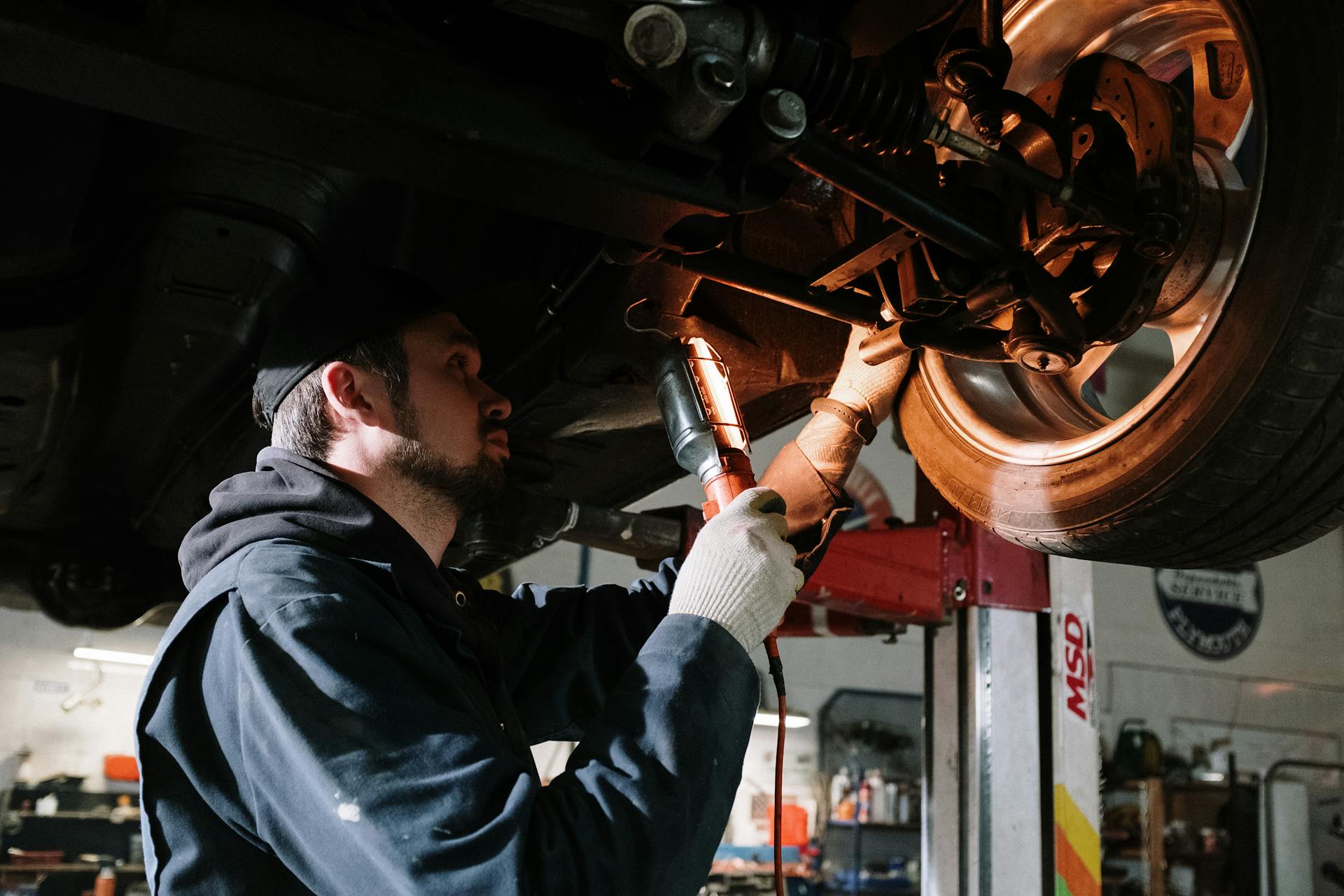Opening your car door on a warm day should be a relief, especially when you’re counting on your AC to blast cool air. But instead of comfort, you’re greeted by a musty, sour smell. It’s not just unpleasant, it can make every drive feel a little less bearable. This mildew-like odor isn’t just random, it’s a sign that something is wrong inside your vehicle’s AC system.
Smells like these rarely fade away on their own. Whether it’s leftover moisture, mold hiding out, or a filter that’s seen better days, that odor usually means there’s a buildup of something you don’t want circulating through your cabin. Knowing what causes that mildew smell is an important first step in fixing it and getting your AC running fresh again.
Causes Of Mildew Smell In Car ACs
When your car’s AC starts smelling musty, the problem almost always traces back to moisture. The AC works by removing humidity from the cabin as it cools down the air. That moisture needs to be drained properly. If it can’t escape, it collects inside the system and creates the perfect space for bacteria and mold.
Here’s why that smell might be there:
1. Moisture buildup: After you shut off the engine, moisture inside the evaporator coil might not drain away. If the drain is clogged or slow, moisture lingers and can turn the area into a mold zone.
2. Mold growth in the evaporator core: This is a common spot for water to accumulate in the AC system. If the system doesn’t dry completely after use, mold and bacteria get cozy there.
3. Dirty cabin air filter: Your cabin air filter catches particles like dust and pollen. But over time, it also catches moisture. When it gets damp and clogged, it can start to smell bad and even help spread that smell into your cabin.
4. Parking in damp places: Leaving your car in shaded or damp areas or not driving it often can mean the AC system doesn’t get the airflow it needs to fully dry. The longer it stays wet, the more likely smells will form.
5. Debris blocking airflow: Leaves, dirt, and other particles around the intake vents or inside the ducts trap moisture, slow down system drying, and contribute to that musty smell.
Letting any of these issues go can keep the mildew smell around longer and limit how well your AC cools the air. Fixing the source now prevents bigger problems with airflow and air quality later.
How To Detect And Diagnose The Issue
Before bringing your car in for repairs, it helps to notice a few signs. In some cases, the issue is easy to spot. In others, it may take a bit more observation.
Look out for these clues:
– There’s a mildew or musty smell a few seconds after turning on the AC.
– Your AC doesn’t seem to blow as cold as it used to.
– You hear a faint dripping or whistling sound coming from behind the dashboard.
– You see dust buildup or even mold around the vents or near the cabin air filter.
Start by checking the cabin air filter. If it looks old, dirty, or damp, replacing it can often help with the smell right away. In most cars, it’s located behind the glove box or under the dash. If that filter looks good, the issue may be further in, around the evaporator core.
Some drivers try running just the blower fan for a few minutes with the AC turned off to help dry out the system after a drive. That’s a handy habit, but if you’ve already tried that and the smell keeps coming back, there may be something deeper causing the problem.
Persistent smells that linger in the vents could point to mold further inside the ductwork or clogged drains. Those types of issues are harder to get to and are best handled by a professional inspection to figure out exactly what’s happening behind the scenes.
Solutions And Preventative Measures
Once you understand where the smell is coming from, it’s time to fix it and keep it from coming back. A few changes to your driving or maintenance routine can make a big difference.
These tips can help solve the issue and prevent mildew buildup:
1. Replace the cabin air filter regularly, especially if you drive in dusty areas or during allergy season. If it feels damp or smells bad, it’s time for a new one.
2. Make sure the drain line for your AC is clear and not blocked. Clogged lines cause backup, which leads to standing water and strong smells.
3. A minute or two before parking at home, turn off the AC but let the fan run. This helps air out the vents and dry the system from the inside.
4. Try not to use the recirculate setting all the time. Letting fresh outside air into the system helps with moisture control and improves airflow.
5. Use the AC now and then even when it’s cooler out. Running the system regularly helps keep components dry and catches issues early.
6. Book air conditioning repair and inspection services routinely. A certified technician can clean, adjust, and check things most owners can’t see or reach.
Ignoring early clues like weird smells or reduced airflow often leads to problems that take more time and money to fix. Keeping everything clean and running smoothly will make your car feel better inside and even boost the performance of your cooling system.
When To Consider Professional Help
If you’ve already tried the basics and that smell returns, it’s a good idea to bring in trained help. Some parts of your AC system, like the evaporator, ducts, and internal drain lines, aren’t easy to clean at home. Moisture or debris hiding in those tighter spots needs the right tools and experience.
Here’s when it makes sense to stop and let the professionals step in:
– You’ve put in a new filter, but the smell returns within a day or two.
– Your vents are blowing noticeably less air, or the air feels warmer than it should.
– There’s water under your car even though you never ran the AC.
– Visible mold near or inside the vents or increasing odor intensity while driving.
– You’ve tried simple cleaning methods but the smell keeps coming back.
Trained technicians can deep clean areas like your evaporator core or internal ductwork where moisture hides. They’ll also check for drain clogs or leaks and fit new parts if needed. Not addressing these AC issues early might shorten the life of the system and require even bigger repairs down the line.
A Fresh Smell Makes Every Drive Better
A mildew smell from your AC isn’t just annoying. It can make the daily drive less enjoyable and leave you wondering what kind of air you’re breathing in. Luckily, solving the issue usually isn’t complicated once you track down what’s causing it.
Whether it’s a filter that needs swapping or moisture hiding in the ducts, small fixes can go a long way. And for deeper problems, a good air conditioning repair service will clear out the source and have your car smelling like new again.
Keeping your AC system in shape means better air, better performance, and a more comfortable ride for you and your passengers. Don’t wait for the smell to grow stronger. Regular care keeps you ahead and makes every drive a little fresher.
Ensure your car remains a pleasant place to be. Routine check-ups make a noticeable difference in comfort and air quality. For those looking to tackle persistent smells with expert care, our team is here to assist. Discover how regular air conditioning repair can keep your AC running smoothly and your cabin fresh. H&I Automotive provides reliable solutions that restore your car’s comfort.




